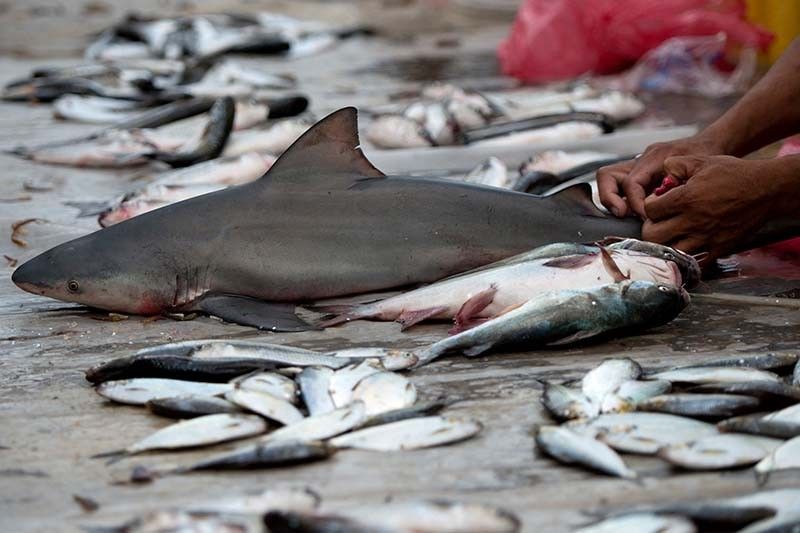Advocates call for law to protect sharks and rays from illegal fishing, other threats

MANILA, Philippines — Conservation organizations on Monday called on Congress to pass legislation that will protect sharks and rays, which are critical to the stability and health of oceans, but are also threatened by overfishing, marine pollution and the destruction of their habitats.
The Save Sharks Network Philippines called for a passage of a "science-based, enforceable, and socially just" measure that will manage these threats.
"Sharks and rays in the Philippines play an important role in the country’s economy and in our ecology. A lot of sharks and rays are apex predators so a lot of these species help protect marine ecosystems and create healthy oceans," said Anna Oposa, executive director and "chief mermaid" of Save Philippine Seas.
Sharks and rays also generate revenue through fishing and ecotourism at diving sites. Whale shark tourism has helped the economy in places like Donsol in Sorsogon and Oslob in Cebu, although there have also been concerns about how tourism affects the migratory butanding.
Around 200 species of sharks are found in the Philippines. Of those, only 28 are protected. Data on the current status of their populations in the country is limited.
Sharks and rays are threatened by overfishing, illegal fishing, habitat destruction, climate change and marine pollution, the groups said.
"When we address those problems, we will also help the country’s seas," Oposa said.
She urged the public to refrain from consuming shark fin soup, and to help amplify the call for elected officials to make the passage of shark conservation bill a priority.
A bill filed by Rep. Eduardo Rama (Cebu City) seeking the conservation of sharks, rays, and chimaeras has reached the House of Representatives’ Committee on Appropriations.
Lawmakers in the lower house are also creating an alliance that will advocate for the passage of the measure there and of counterpart bills in the Senate.
The celebration of Shark Conservation Week in the Philippines began in 2014.
- Latest


























